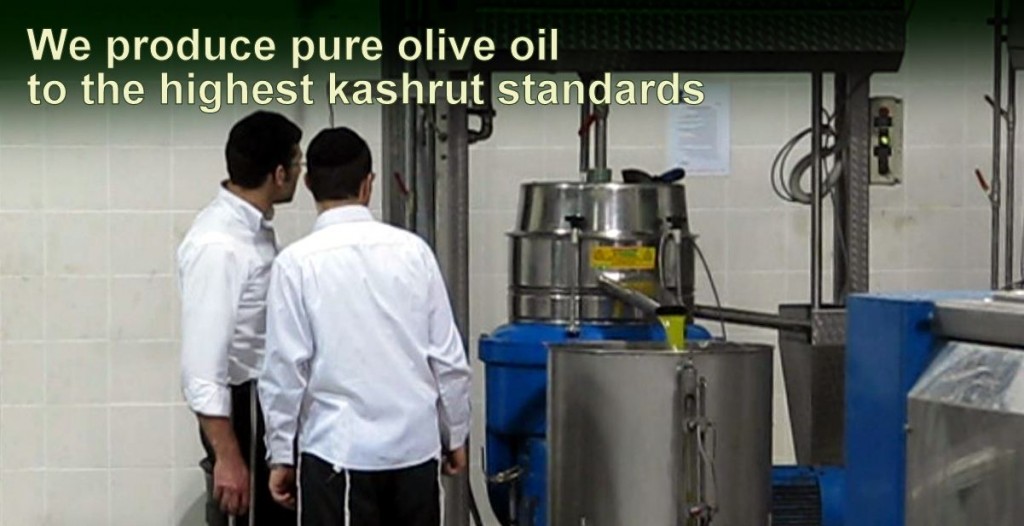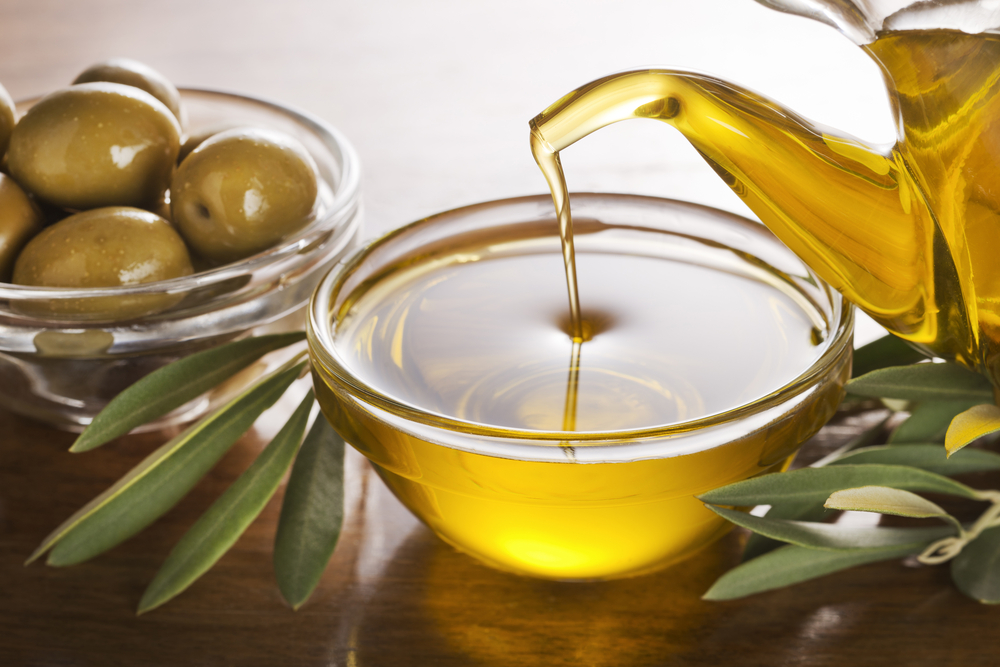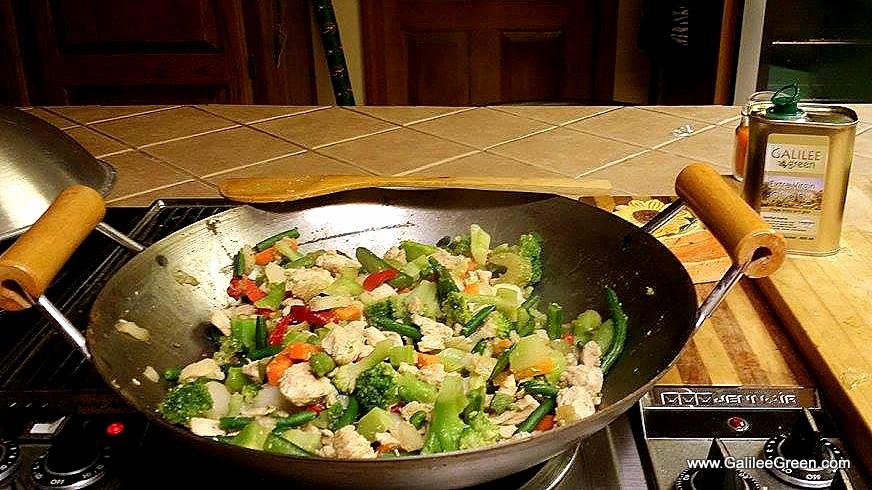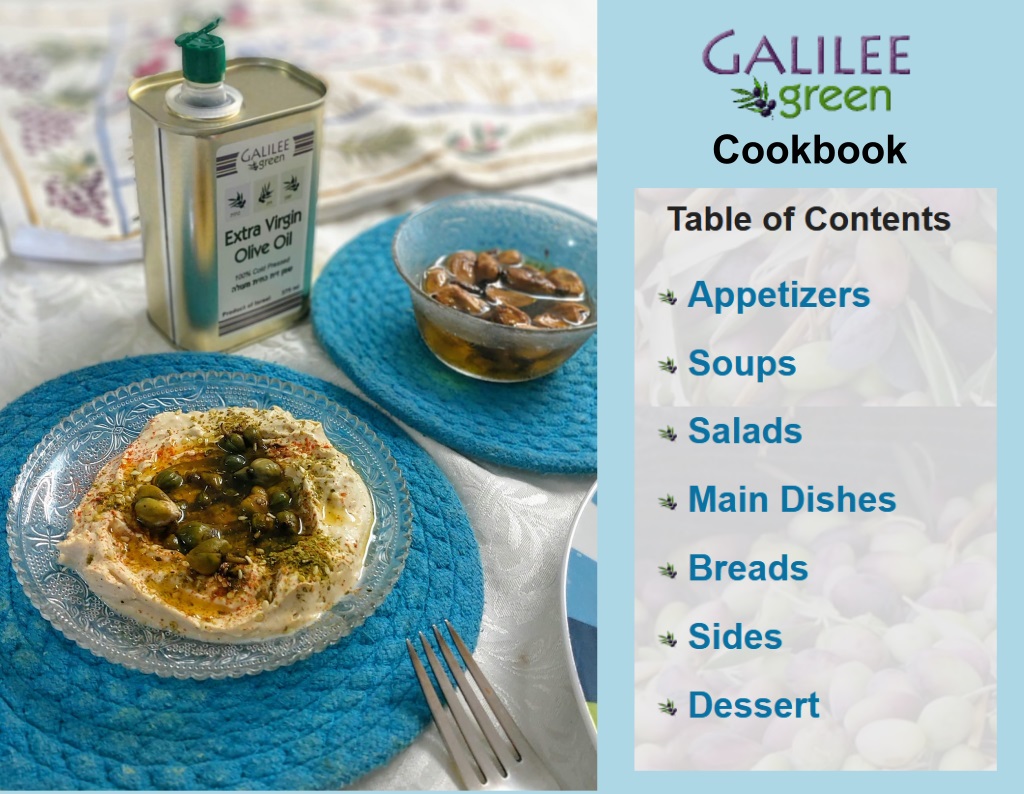
Why Extra Virgin Olive Oil is best — even for cooking!
Over the years, the debate has raged over the potential health benefits of extra virgin olive oil (EVOO). Is it healthy and is it suitable for cooking?
The truth is that extra virgin olive oil is quite possibly the healthiest fat in the world.
Most importantly, it is very heat-stable and has a wealth of benefits.
This article takes an evidence-based look at the full nutrition profile, fatty acid composition and health benefits.
What is the Difference Between Extra Virgin and Other Olive Oils?
Firstly, there are several key differences between extra virgin olive oil and other varieties.
Here is a quick rundown;
-
Extra virgin olive oil contains a large amount of polyphenolic compounds, but refined olive oils lose (most of) these during manufacture (3).
-
Compared to refined olive oils, EVOO has a much stronger flavor and a darker color. Refined oils are very light.
-
Refined olive oils are almost tasteless, but a high-quality extra virgin olive oil should cause a peppery burning feeling in the back of the throat. This is due to the presence of an anti-inflammatory compound called oleocanthal.
-
Refined olive oils are much cheaper than extra virgin olive oil, but when it comes to health… you get what you pay for.
Key Point: Not all olive oil is made the same. For health (and taste) there is only one choice; extra virgin olive oil.
Nutrition Facts
Let’s now analyze the nutritional value of extra virgin olive oil per 100ml
Calories and Macro nutrients
|
Calories / Macro nutrient
|
Amount (kcals / grams)
|
|---|---|
|
Calories
|
884 kcal
|
|
Carbohydrate
|
0 g
|
|
– Fiber
|
–
|
|
– Sugar
|
–
|
|
Fat
|
100 g
|
|
– Saturated Fat
|
13.8 g
|
|
– Monounsaturated Fat
|
73 g
|
|
– Polyunsaturated Fat
|
10.5 g
|
|
– Omega-3 fatty acids
|
761 mg
|
|
– Omega-6 fatty acids
|
9763 mg
|
|
Protein
|
0 g
|
Firstly, as an isolated fat, extra virgin olive oil does not provide any carbohydrate or protein.
Regarding the fatty acid profile, the oil mainly supplies monounsaturated fat.
The predominant fatty acid is the monounsaturated oleic acid.
Vitamins and Minerals
Here is the micro-nutrient profile and how it relates to the recommended daily allowance;
|
Micro-nutrient
|
Amount (% RDA)
|
|---|---|
|
Vitamin K
|
75%
|
|
Vitamin E
|
72%
|
Not surprisingly, extra virgin olive oil does not contain a wide range of vitamins and minerals.
However, this is not unusual for an oil. After all, oils are an isolated source of fat rather than a complete food.
However, EVOO still offers much more than many refined oils do, and it contains a decent source of two major micro nutrients; vitamins E and K.
Polyphenols and Bioactive Compounds

Among all food, this healthy oil contains one of the broadest range of polyphenolic compounds.
This range includes various types of flavonoids, phenolic acids, lignans and tyrosols (5).
These polyphenols are part of the reason why the oil has good oxidative stability, and additional health benefits.
Key Point: Extra virgin olive oil is a substantial source of monounsaturated fat. It contains vitamins E and K, and it also supplies a range of polyphenolic compounds that offer various benefits.
Health Benefits of Extra Virgin Olive Oil
The reason is because the available research on this oil is unanimous; extra virgin olive oil is good for you.
In fact, it is the most research-backed cooking oil out there.
Let’s now take a look at some of the benefits.
1. Oxidative Stability: the Best Cooking Oil?
It is easy to hear the question “can you fry with olive oil?”
Over the years, there has been a widespread myth that olive oil is not safe for cooking and that it is unstable at high heat.
However, yes, that is a myth.
There have been numerous studies showing the opposite for a long time, with one, in particular, demonstrating that “extra virgin olive oil is clearly resistant to deep frying conditions” (6).
If oil can stand up to deep frying conditions for over 24 hours with “minimal oxidation”, then it can certainly cope with a bit of pan-frying.
Furthermore, a new recent study compared the heat stability of common cooking oils. (Source)
The researchers heated a range of cooking oils to a temperature of 240°C. These oils were extra virgin olive oil, virgin olive oil, olive oil, avocado oil, grapeseed oil, sunflower oil, rice oil, peanut oil, canola, and coconut oil.
Heating these cooking oils to a temperature of 240°C resulted in the formation of trans fats in every single oil.
However, the fruit oils all performed much better than the “vegetable” (seed) oils.
The amount of trans fats created in the extra virgin olive oil was one of the lowest at 0.2%.
Then they measured the amount of toxic polar compounds created when the oils were continuously heated at 180°C for 6 hours.
Once again, extra virgin olive oil was one of the best-performing oils.(Source)
Key Point: Extra virgin olive oil is not just for salads; it is probably the healthiest cooking oil too.
2. A Healthy Fatty Acid Profile
One of the main positive points about this oil is the fatty profile that it has.
Extra virgin olive oil has a fatty acid composition full of healthy fats.
The table below shows the primary fatty acids and in what proportion they occur (4);
|
Fatty Acid
|
Saturation
|
Proportion
|
|---|---|---|
|
Oleic Acid
|
Monounsaturated
|
71.3%
|
|
Palmitic Acid
|
Saturated
|
11.3%
|
|
Linoleic Acid
|
Polyunsaturated
|
9.8%
|
|
Stearic Acid
|
Saturated
|
2%
|
|
Palmitoleic Acid
|
Monounsaturated
|
1.3%
|
As shown, we can see that these five fatty acids provide more than 95% of extra virgin olive oil’s fat content.
Notably, a systematic review of intervention trials shows that oleic acid, the primary fatty acid in olive oil, may help to protect against cardiovascular disease and type 2 diabetes (8, 9).
Key Point: Extra virgin olive oil contains a range of healthy fatty acids, with oleic acid being the most predominant.
3. Extra Virgin Olive Oil’s Polyphenols Fight Inflammation?
As we discussed earlier, extra virgin olive oil contains a wide variety of polyphenols.
Research demonstrates some beneficial things that polyphenols can do in – and out – of our body (10).
Firstly, the polyphenols in extra virgin olive oil help to prevent the fats from oxidizing during high-heat cooking.
One major point that demonstrates this is that refined olive oil and extra virgin olive oil have the same fatty acid profiles, but unrefined extra virgin is much more resistant to oxidation at high temperatures. (11).
Additionally, recent research suggests that polyphenols assist with cellular signaling and play a role in anti-inflammatory processes inside the body (12).
On this note, several human randomized trials show that olive oil polyphenols help to reduce oxidized LDL “bad” cholesterol. Also, they appear to enhance the functionality of HDL “good” cholesterol (13, 14).
Key Point: Olive oil polyphenols help to protect the fatty acids from oxidation while cooking. Additionally, they may help to protect our body against disease.
4. Cardiovascular Protection
Regular intake of extra virgin olive oil appears to have cardiovascular benefits.
For instance, several recent systematic reviews show that greater consumption of the oil has a positive effect on cardiovascular risk;
Key Point: Randomized trials and systematic reviews clearly show that extra virgin olive oil benefits cardiovascular health.
5. A Source of Oleocanthal
Oleocanthal is an exciting compound with some potentially impressive health benefits.
Firstly, oleocanthal is a phenol that occurs in olive oil, and research suggests it has anti-inflammatory properties.
Try a good quality extra virgin olive oil in its cold state and you should feel a burning feeling in the back of your throat a few seconds after consumption. This taste is the oleocanthal; a peppery-tasting compound that shows an effect similar to ibuprofen in in vitro studies.
Currently, researchers view the compound as having potential, but they are still trying to ascertain the digestive bioavailability (19).
Key Point: Olencanthal is one of many polyphenols that naturally occur in extra virgin olive oil. It may have an anti-inflammatory effect in humans, but more research is necessary.
6. Rich in Vitamin E
Not many foods in the modern diet consist of vitamin E in high amounts.
Fortunately, extra virgin olive oil provides this vitamin E in large amounts; 72% of the RDA per 100 grams. It provides approximately 10% of the RDA per tablespoon. Vitamin E functions as an antioxidant in the body, and likely plays a role in strengthening the immune system and anti-inflammatory processes (20).
Researchers have recognized vitamin E as potentially having anti-cancer properties, although the data is quite mixed (21).
A large-scale systematic review (13,800 patients across 19 observational studies) found that olive oil consumption is associated with a reduced risk for cancer development (22).
Key Point: Extra virgin olive oil provides a decent amount of dietary vitamin E.
Final Thoughts
Extra virgin olive oil has a whole range of benefits.
It is very heat-stable, it contains a range of bioactive compounds that confer health benefits, and it has substantial amounts of positive research behind it.
Finally, it is time to forget the myth.
Extra virgin olive oil is not just suitable for cooking; it is probably the safest cooking oil there is.








1 Comment
Carl William Barnes · March 18, 2021 at 1:17 pm
I’m lo ok king for the right olive oil. Since I’ve found the recipe to certain health advantages of drinking olive oil, I dont want to settle for just any brand of extra virgin olive oil.